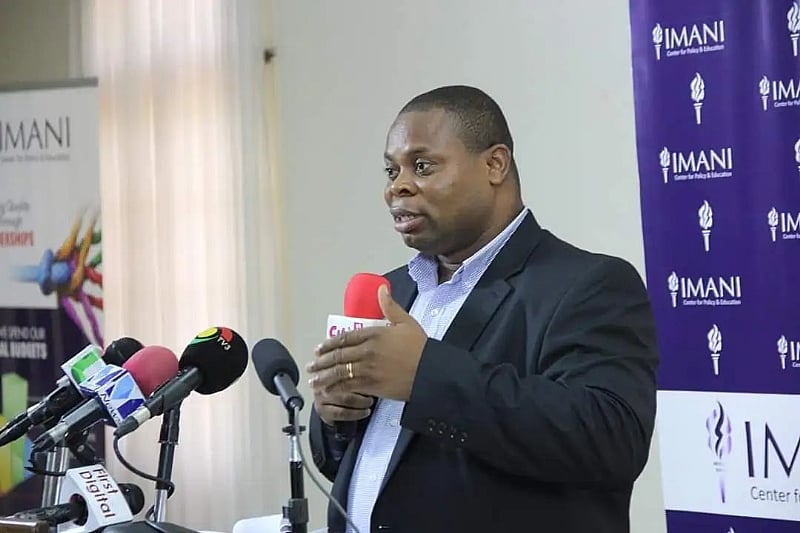In an increasingly precarious West African neighbourhood, Ghana appears outwardly calm—but the tremors at its borders raise urgent questions. Military juntas in Mali, Burkina Faso, and Niger have overthrown constitutions with ease, while civilian regimes in Côte d’Ivoire and Togo deploy legal manoeuvrings to entrench power with little protest from international actors. Though Ghana has long stood as a democratic exception in the region, that reputation can not be a shield forever. When leaders begin to treat constitutional mandates as optional, and regional silence greets democratic sabotage, the question no longer becomes whether a democracy can fall—but when, and how.
The literature on Ghana’s democratic health already presents cause for concern. Mawuloe Koffi Kodah’s notion of “democratic illiteracy,” articulated in the African Journal of Political Science and International Relations, warns that many Ghanaians lack a grounding in civic knowledge and democratic principles, leaving them vulnerable to manipulation and disengagement. Victor Adetula, writing for the Nordic Africa Institute, echoes this disillusionment, pointing to a surge in institutional mistrust—particularly toward the Electoral Commission—and a growing sense that formal democracy may not produce real change. The erosion of institutional legitimacy is also examined in Adams Mubarak’s 2023 essay, which notes that corruption, elite impunity, and chronic political exclusion remain unresolved despite three decades of constitutional rule.
Yet it is not just what happens within Ghana that matters. Scholars and regional analysts are increasingly turning their attention outward. The contagion effect of democratic backsliding—whether by military boot or judicial robe—is taking hold across West Africa. In Togo, the April 2024 constitutional amendment that reshaped the presidency into a ceremonial role and transferred executive power to a new “President of the Council of Ministers” has effectively allowed President Faure Gnassingbé to sidestep term limits. What has followed has been a wave of youth-led protests, decentralized and digitally coordinated, demanding an end to dynastic rule that has lasted nearly six decades. The government’s response—a mix of repression and internet blackouts—is familiar and deeply instructive.
Côte d’Ivoire’s trajectory has been more subtle, but no less corrosive. Ahead of the 2025 elections, the government used institutional processes to bar key opposition figures like Laurent Gbagbo and Tidjane Thiam from running, while judicial and electoral agencies remained unflinching in their interpretations. With Alassane Ouattara facing virtually no credible opposition, the line between democratic competition and coronation grows thin. As observed in The Africa Report and Al Jazeera, Côte d’Ivoire is sliding into a managed democracy—one in which rules technically exist, but only to validate the status quo.
It is this kind of regional normalization of authoritarian legality that threatens Ghana most. The Media Foundation for West Africa, in its 2022 report, cautions that coups and constitutional abuses alike are contagious. When citizens view elections as rituals that produce no accountability—and when regional blocs like ECOWAS respond with ambiguity or soft censure—then even well-established democracies can stumble. This is underscored in Gwinyai Regis Taruvinga’s 2023 analysis, which warns that the growing appeal of military regimes in the Sahel is directly tied to the failures of civilian governments to deliver security and opportunity.
Ghana’s internal weaknesses amplify this exposure. The work of Gyampo, Graham, and Bossman Asare on political vigilantism, as well as Kojo Impraim’s analysis of electoral thuggery, show that violence and elite manipulation are neither distant threats nor foreign imports—they are deeply embedded in Ghana’s own democratic landscape. Add to this the rising frustration of Ghanaian youth, many of whom face high unemployment and perceive politics as a closed game, and it becomes clear that the space for democratic rupture is not hypothetical—it is latent.
What keeps the line from breaking is not inevitability, but vigilance. Ghana’s courts, civil society, faith groups, and independent media have, for now, helped stem the tide. But these institutions require constant renewal—and genuine political will—to maintain legitimacy. The moment leaders begin to treat those institutions as inconveniences rather than cornerstones; the dominoes gain momentum. As Ghana watches its neighbours repurpose constitutions and sideline dissent, it must choose: will it be the firewall that holds, or the final tile to fall?
Credit- IMANI’s Criticality Analysis of Governance Issues, June 1-7, 2025. For interviews, please reach out to Ransford at rbrobbey[at]imanighana . org


